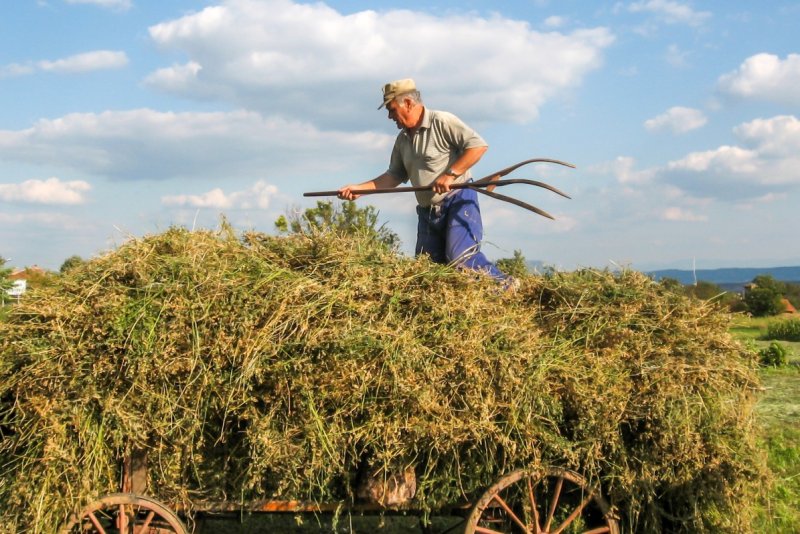As global warming progresses, increasing temperatures for longer periods of the year will pose health risks for farmworkers and others who work outdoors, say researchers and advocates. Photo courtesy of pxhere
Oct. 8 (UPI) -- Every year, a few hundred people in the United States die as a result of heat exposure, making heat stress the leading cause of weather-related deaths -- deadlier than lightning, tornadoes, hurricanes and floods.
Outdoor workers are especially vulnerable to heat, and their risk of exposure to heat stress conditions is likely to increase with the effects of climate change.
That's why several advocacy groups, including Public Citizen and the United Farm Workers, have petitioned the federal government to establish stronger -- and specific -- heat stress-related protections for outdoor workers.
Heat stress conditions are produced by the combination of high temperatures and high humidity. When it's humid, sweat can't evaporate efficiently, limiting the body's natural ability to regulate temperature.
In the American Southwest, where humidity is low, extreme temperatures can produce heat stress conditions on their own.
"In general, there's been an increase in heat stress conditions over at least the last few decades," Rachel Licker, senior climate scientist at the Union of Concerned Scientists, told UPI.
The Union of Concerned Scientists is one of several science and advocacy groups supporting the campaign for stronger heat stress protections.
Previous studies have predicted an increase in the frequency and intensity of heat waves as climate change progresses.
"In the next few decades, if carbon emissions continue to grow, most of the country could see 20 to 30 more days annually with maximum temperatures above 90 degrees Fahrenheit," according to a recent report by the Union of Concerned Scientists.
A recent NOAA study offered similar predictions.
How will warming trends impact workers? Tracking and predicting the effects of heat stress on worker health is more difficult.
"It is really difficult to estimate the impacts of heat stress conditions on worker health because instances of heat stress and heatstroke are underreported," Licker said. "Heat stress is often an underlying factor but not the main documented cause on a death certificate."
It follows logically, however, that an increase in extreme heat and heat stress conditions will increase the risk of heat stress illness and heat stress-related fatalities. As such, workers' rights and public health advocacy groups want the U.S. Occupational Safety and Health Administration, an agency within the Department of Labor, to enact specific heat stress protections for outdoor workers in the United States.
California, Minnesota and Washington have all passed state regulations offering stronger heat stress protections, but federal worker safety regulations include no specific heat stress protections.
According to OSHA, the risk of heat stress is covered by the "general duty" clause of the Occupational Safety and Health Act, which requires workplaces remain "free from recognized hazards."
OSHA publishes recommendations for the prevention of heat stress illness and death. OSHA's prescription -- rest, shade and water -- works, but worker safety advocates want more than recommendations. The latest petition called for an official stand, a set of requirements.
Critics of the current protections, or lack there of, claim many outdoor workers may not recognize heat stress conditions, or may be scared to ask for rest, shade and water.
OSHA declined to comment on the likelihood of a new heat stress standard being written and enacted.
"The Labor Department does not speculate on potential rule-making," spokeswoman Amy Louviere told UPI.
OSHA has yet to respond to the latest petition, but the agency denied a similar petition in 2012.















